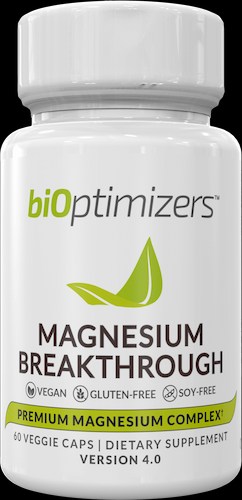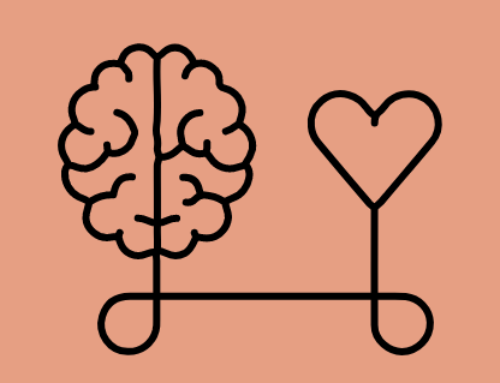Updated 10/8/23; Originally posted 3/20/22
Magnesium is often regarded as the “forgotten mineral” even though it is used in over 300 enzymatic processes in the body. Magnesium benefits both body and mind in incredibly important ways but is but is rarely discussed or measured by Western Medicine doctors.
Magnesium is required for optimal functioning of your blood vessels, muscles, brain, bones, heart, and nerves. It is used in energy creation and metabolism, blood sugar regulation, blood pressure control, protein synthesis, and more! Magnesium has complicated relationships with calcium, Vitamin D, parathyroid hormones, and your immune system. Low magnesium, contributes to chronic low grade inflammation which makes other issues worse!
I think by now you get the idea that if you want to feel great, be healthy, and think superbly – you need plenty of magnesium!
Table of Contents:
- Magnesium Uses in the Body
- Magnesium Absorption and Storage in the Body
- How to Know Your Magnesium Status: Deficiency Symptoms and Testing
- 11 Forms of Magnesium
- Zoa’s Recommended Magnesium Supplements
- How and When to Take Magnesium Supplements
- References
Magnesium Uses in the Body
1: Magnesium for Muscles
Magnesium and calcium are partners when it comes to muscles. Calcium controls muscle contraction creating our strength. Magnesium gets the muscle to relax so it can contract again when you need it to. Low magnesium in the muscles results in constant tension which creates pain, reduced mobility, and lower effectiveness. This is true for all of your muscles: biceps, glutes, blood vessels (see my article on Raynaud’s), your heart, and your digestive tract.

2: Magnesium and DNA
Magnesium is important for every cell on a DNA level. Magnesium bonds to certain places in the DNA strand which provides structural stability and protection. Low magnesium concentrations in the cell destabilizes your DNA.

When a cell replicates, the DNA has to make a copy of itself. If the copy is not identical, the cell is a tad different. DNA can repair itself – if it has magnesium present. These types of genetic variations contribute to cells deciding to operate differently from their parents which is the beginning step of developing cancer. I definitely do not want that, so I make sure to get enough magnesium!
3: Energy and Magnesium
Magnesium is required in order for your cells to use energy. Mitochondria make ATP in return for getting to live inside your cells. In order for that ATP to be used, it much be converted into a biologically active form. A magnesium ion is required for every unit of ATP to be bioavailable. So even if your mitochondria are doing a great job at making you energy, low magnesium will keep you feeling tired!

4: Magnesium and Bones
Bones rely on magnesium to control their structure and form. In a healthy body, half of the body’s magnesium is found inside the bones. Magnesium’s presence inside bones controls the growth of new bone thereby preventing bone loss and promoting bone remodeling.

Bones with low magnesium have larger crystal structures that are more regular in nature which makes bones easier to break. I know I want bones that have remade themselves into stronger, more youthful bones so more magnesium for me!
5: Magnesium and Glucose Regulation
Magnesium deficiency has been correlated to Type 2 diabetes and insulin resistance. Magnesium is required by the liver for proper processing of sugars (carbohydrates). Insulin receptors in the body require magnesium to work. Your body may try and pump out more insulin to deal with your blood sugar, but be failing at controlling the blood sugar due to insufficient magnesium!

You can monitor your improvement in blood sugar regulation by occasionally wearing a Continuous Glucose Monitor. A CGM allows you to see in real time your blood sugar levels after eating a donut, taking a walk, during your sleep, or eating a plate full of vegetables and protein! CGMs are a part of my Metabolic Flexibility Plan.
6: Your Brain and Magnesium
Inside the brain, your neurons are activated (called to work) by glutamine. Glutamine has to slide into an open NMDA receptor in order to do its job. Magnesium ions in the brain cause the NMDA receptors to open. Low magnesium means neurons on vacation and decreased ability to think!

It goes beyond that though as low magnesium has been implicated in migraines, chronic pain, Alzheimer’s, Parkinson’s, depression, and anxiety. Mental health and function depends on healthy magnesium levels.
7: Thyroid Hormones and Magnesium
Medical studies have shown that magnesium supplementation has improved thyroid hormone levels and reduced the TSH levels coming from the brain. TSH is the instruction from the brain to the thyroid that says “make more thyroid hormones”. An elevated TSH level means your brain is yelling at your poor thyroid hormone – demanding it to work. When magnesium levels in the brain are improved, your overall stress level goes down, the brain yells less, and the thyroid functions better. Don’t we all work better without some stressed person (or your own brain) yelling at us?

Magnesium Absorption and Storage in the Human Body
Magnesium (Mg) is stored primarily in your bones (50-60%) and muscles/soft tissue (34-39%). Only 1-2% of your Magnesium is stored in your blood. Babies accumulate their magnesium before they are 6 months of age (and it comes from their mama’s breastmilk which means mama’s bones and muscles if your intake it low!).
When you eat, drink, or supplement, inside the intestinal tract the magnesium compound is split to liberate the positively charged magnesium ion. This magnesium ion moves through your intestinal wall into your blood stream.
Typically, about 30% of the magnesium will get absorbed through your intestinal wall. More will be absorbed if you are currently deficient in Mg. Less Mg gets absorbed in you have leaky gut or other absorption issues. Magnesium absorption, like other nutrients, decreases with age.
Magnesium levels in your blood are regulated by your kidneys. Healthy kidneys control both reabsorption and excretion of magnesium.
How to Know Your Magnesium Status
Almost all Americans are deficient in magnesium in their bodies. Stress uses up magnesium fast! Our modern diets and over-farmed soils are typically low in magnesium. If you want to feel better not older, you will want to know your current magnesium levels and make adjustments to your intake as needed for optimal health. I suggest making use of 3 assessment tools: Magnesium deficiency symptoms, a Red Blood Cell Magnesium Test, and a Hair Mineral Analysis.
Magnesium Deficiency Symptoms
Self assessment is the easiest and most reliable way to figure out if your body’s magnesium level is lower than optimal. Below is a list of symptoms associated with low magnesium. How many do you feel often?
- Overall weakness and fatigue
- Heart rhythm irregularities and palpitations
- Poor memory
- Low calcium, potassium, and Vitamin D levels in blood
- Muscle cramps, twitches, and spasms
- Chronic Pain
- Kidney stones
- Anxiety
- Osteopenia and osteoporosis
- Frequent urination
- PMS (premenstrual syndrome)
- High blood pressure
- Poor sleep or insomnia
- Constipation
- Teeth grinding and jaw clenching
- ADHD or ADD
- Restless Leg Syndrome
- Chocolate cravings
- Asthma
- Diabetes and insulin resistance
- Alcohol dependency
- Tooth decay
- Calcification of soft tissues
- Low stress tolerance
- Thyroid issues
- Obsessive Compulsive Disorder
- Feeling old!
If you have more than a few on a daily basis, adding magnesium to your diet and supplementation protocol is easy. Be selective about your supplement choices (keep reading for Zoa’s choices) as you want to focus on the best forms for your symptoms and high bioavailability.
Blood and Urine Magnesium Tests
There are 3 ways your doctor can test your magnesium levels: blood serum, red blood cell (RBC), and urine. Blood serum magnesium tests indicate the level of magnesium in your blood, but are not as useful as the RBC magnesium test. The RBC magnesium test (order your own RBC magnesium blood test through Zen and Vitality!) provides an early indicator of a deficiency compared to the serum test. It is also more expensive. A urine test is best at telling you if your kidneys are sending your magnesium out of the body instead of putting it back into the blood stream to be taken to your brain and muscles.
Keep in mind that only 1-2% of your body’s magnesium is in your blood. The problem with all these tests is that the magnesium levels in your blood and red blood cells is strongly regulated to be constant within a small range but the magnesium levels in your bones and muscles is not.

A blood test tells you if something is drastically wrong but is suboptimal for assessing if you are deficient in magnesium and should raise your intake. It is cheaper and easier to just increase your magnesium supplementation and see if you feel better!
11 Forms of Magnesium
There are many chemical forms of magnesium (Mg) that can be found in a supplement, each one has its pros and cons for your body. The difference has to do with what the elemental magnesium is bound to in order to get it into your body. The binding molecule will also benefit the body as described below!
- Aspartate – a Mg form that reduces fatigue and muscle hyper-excitability as it is a critical player in cellular energy production. This form has been used for chronic fatigue syndrome and has been shown to help with mood.
- Bisglycinate – the Mg form associated with better sleep because the glycine is helpful for the brain to enter deep restorative sleep
- Chelate – an easily absorbed Mg form especially important for muscle building, recovery, and overall health.
- Chloride – often found in liquid and topical forms (Magnesium oil) which might be the best form for those with digestive absorption trouble – as long as it does not irritate your skin
- Citrate – a commonly available Mg form that has low bioavailability but is often used as a laxative and for muscle relaxation
- Malate – considered a very bioavailable Mg form that stays high in the blood longer than other forms and has been connected to reduced anxiety and calmer nerve cells
- Orotate – thought to be the best Mg form for metabolic improvements because the orotate is favored by athletes wanting enhanced recovery, energy, and performance
- Oxide – this is the cheapest and most available Mg form but it also has incredibly low bioavailability because it is virtually insoluble in water (i.e. you!) which is why your body tries to get rid of it fast – along with anything else in your bowels – buyer beware!
- Sulfate – also known as Epsom salts, is a inexpensive Mg form that is for external use (foot bath, elbow bath, or full body bath – you get the idea!) – I suggest you get plain Epsom Salts with no fragrance, essential oils, or other additions
- Taurate – this form of Mg is best for your heart and eyes
- Threonate – the only Mg form that crosses the blood brain barrier and goes directly to your brain and nervous system. If you want more brain energy, better memory, and a lower risk of Alzheimer’s, this is the form for you!
Zoa’s Recommended Magnesium Supplements
All the magnesium supplements that my daughter and I take are available to my clients because they work for us and I believe in the integrity of the companies. Medical studies have shown that the amount of magnesium absorbed from a supplement has more to do with the formulation and bioavailability than with the listed magnesium content on the bottle.
Keto diets can be quite low in magnesium so be mindful that you are getting enough magnesium! Also consider testing your water at TapScore to see if you are getting magnesium every time you drink! Magnesium in water is absorbed particularly well. TapScore provides a parts per million number which is the same as milligrams per liter of drinking water. My water contains 1.44 ppm of magnesium which is insignificant for my body’s needs. I understand Hawaiian water has quite a bit of magnesium – let’s go!
When you are experimenting with dosage on your magnesium supplement, keep in mind that if low magnesium is a cause of constipation – too much magnesium creates a lot of bathroom time as your clean our your bowels. If you get to that level, back off next time!
You should feel better soon after taking magnesium (depending on the form), but you need consistent supplementation for weeks/months to fully receive the benefits. Many practitioners recommend that you give yourself 3 months before retesting your blood or reassessing your symptoms.
Magnesium Breakthrough
I take this at night because it has all but one of the forms of magnesium that I want for my body’s optimal wellness.

Magnesium Threonate
We both take this during the morning and afternoon (as needed) because we want to maximize the benefit to our brains when we need to actively think most – daytime! We make use of both the pill form and and the powdered drink form (tropical punch flavor!).

Any of these could be part of your Custom Supplement Subscription available to clients in the La Plata, MD area and everywhere else too! You may also find a fabulous benefit from the combination of mineral frequencies within a HEAL Capsule.
How and When to Take Magnesium Supplements
- Magnesium can be taken in the morning (for energy), afternoon (for stress relief from the day), or in the evening (to prepare for sleep or for your morning bowel movement)
- For optimal absorption, take smaller amounts throughout the day rather than a large amount once
- Taking your magnesium supplement with food will increase absorption in your gut
- Iron supplements, phosphorus rich foods (dairy and soft drinks), and calcium supplements might compete for absorption so either separate them or take them at appropriate levels to maximize absorption
- Aluminum lowers absorption of magnesium to 1/5 of the normal level – aluminum is found in cookware, food, deodorant, prescription drugs, baking powder, and more
References
- https://www.ncbi.nlm.nih.gov/pmc/articles/PMC6683096/
- Chris Masterjohn PhD’s Testing Nutritional Status Cheat Sheet
- https://pubmed.ncbi.nlm.nih.gov/29679349/
- https://www.ncbi.nlm.nih.gov/pmc/articles/PMC8065437/
- https://magnesiumeducation.com/magnesium-in-drinking-water-sources/
- https://drwillcole.com/vitamins-herbs/having-enough-magnesium
- https://thyroidpharmacist.com/articles/new-studies-on-magnesium-and-thyroid-health/





